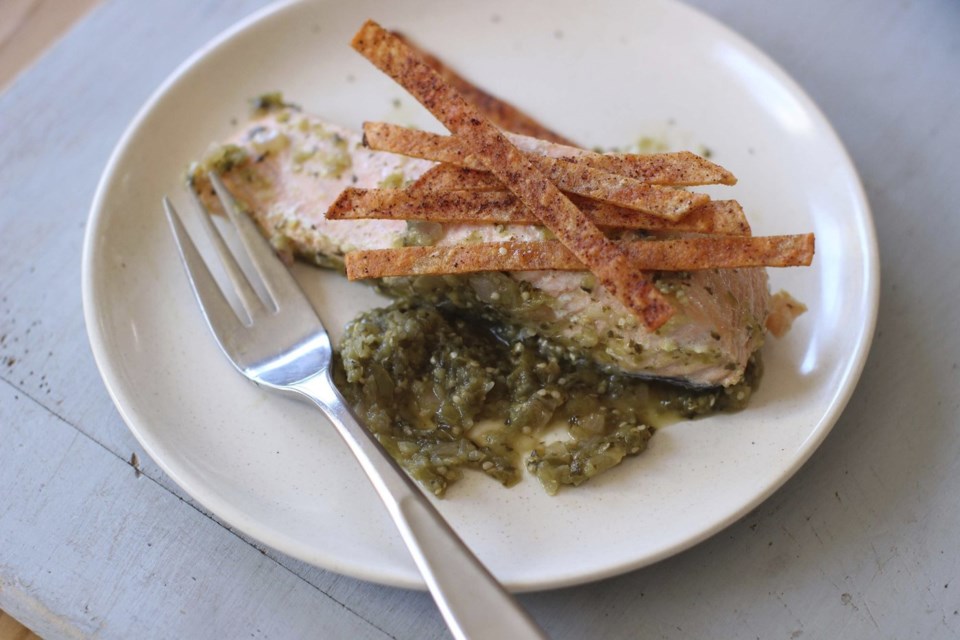LONDON (AP) — You can have your cake and eat it too — .
Experts tend to focus on the kinds of foods you can eat to improve your health. But the speed at which you devour your dinner matters just as much. There are risks with eating too fast — think stuck food and the potential to overeat before your brain tells you to stop. (Inhaling your food also risks annoying your slower-paced dining companions or the person who took the time to cook your meal.)
Here are some tips from scientists on how to slow down and take a more mindful approach to consuming your .
How fast is too fast?
If you’re the kind of person who can regularly polish off breakfast, lunch or dinner in less than 20-30 minutes, you are eating too fast.
“It takes about 20 minutes for the stomach to communicate to the brain via a whole host of hormonal signals that it’s full,” said Leslie Heinberg, at the Center for Behavioral Health at the Cleveland Clinic. “So when people eat rapidly, they can miss these signals and it’s very easy to eat beyond the point of fullness.”
Why is that a problem?
People who eat quickly are likely to swallow more air, Heinberg said, which could lead to bloating or indigestion. Not chewing your food properly can also compromise digestion, meaning you won’t get all of the nutrients from your food. Unchewed pieces of food also could get stuck in your esophagus.
Some previous studies have suggested that people who eat quickly have the highest risk of , while the slowest eaters were the least likely to be obese.
How can you slow down when eating?
For starters, turn off the TV and put down your phone.
“If you’re eating while you watch TV, people tend to eat until there’s a commercial or the show is over,” Heinberg said, adding that people are less inclined to pay attention to the body’s own signals that it’s full. “When we do things while we’re eating, we’re eating less mindfully. And that often causes us to eat more.”
She said that when people focus exclusively on eating, they tend to enjoy the meal more and eat less.
Heinberg also acknowledged the pace at which you eat is often an ingrained habit, but said change is still possible. She suggested things like using your non-dominant hand to eat, trying utensils you might not ordinarily use like chopsticks or taking a deliberate break to drink water when your plate is partially empty.
If you have a busy life, it might be unavoidable to eat lunch at a work meeting or snack while running errands. But Sarah Berry, chief scientist at the British nutritional company ZOE, said when possible, “be mindful of what the food tastes and feels like.”
“If we’re not fully present, it’s very easy to eat more quickly and not notice how much we’ve consumed," Berry said.
Chew your food, just like mom told you to
One of the simplest things to do is to increase the number of bites you take, said Helen McCarthy, a clinical psychologist with the British Psychological Society.
“If you chew each mouthful a little bit longer, that will slow down your eating,” she said.
The kind of food you eat may also make a difference, pointing out that it’s much easier to eat or fast foods quicker, because they typically have a softer texture.
“It’s hard to eat vegetables and protein at the same rate as something that’s highly processed and requires less chewing," McCarthy said.
Some of her patients also reported an unintentional side effect once they began eating more slowly, referencing one woman who often ate a tube of potato chips every evening. When McCarthy told her to slow down and eat every single chip individually, her patient told her “it was like having a mouthful of claggy chemicals.”
“She didn’t find (the chips) enjoyable anymore,” McCarthy said.
___
The Associated Press Health and Science Department receives support from the Howard Hughes Medical Institute’s Science and Educational Media Group. The AP is solely responsible for all content.
Maria Cheng, The Associated Press



